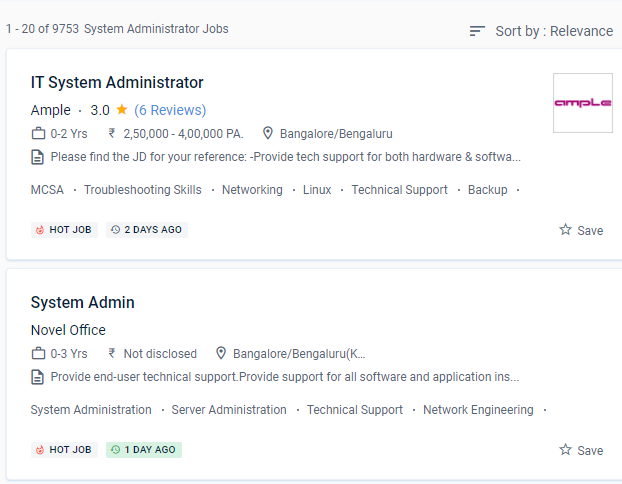System Administration Training by Experts
Our Training Process

System Administration - Syllabus, Fees & Duration
MODULE 1
- System administration introduction, policies, overview, UNIX history and basis
MODULE 2
- File systems and disks
MODULE 3
- Software installation concepts
MODULE 4
- Multi users basics, politics, policies and ethics
MODULE 5
- Automating administrative tasks
MODULE 6
- Networking
MODULE 7
- Backup and disaster recovery
MODULE 8
- DNS
MODULE 9
- SMTP, HTTP
MODULE 10
- Configuration management
MODULE 11
- Distributed computing
MODULE 12
- SNMP, monitoring
MODULE 13
- System security
This syllabus is not final and can be customized as per needs/updates





 You'll also learn how to manage and configure servers, as well as how to manage PCs, user information, and user productivity using industry tools. Information security managers are given more duties when it comes to protecting sensitive data from hackers.
They set up the network card (NIC) so that data can be sent and received appropriately. Network architects have frequently experienced administrators who build data transmission systems from the ground up. Information technology (IT) experts execute the work of systems administration for a company.
Large companies provide opportunities for system admins to advance through promotions. It is their responsibility to ensure that computer systems and related services work smoothly.
The System Administration course in Geelong will take you from working on a single machine to managing a complete fleet. This course will teach you about the infrastructure services that keep all businesses, big and small, running smoothly.
System administration roles are broad and often vary based on the type of computer system being managed, however, the majority of them have some fundamental functions that can be accomplished in a variety of ways.
You'll also learn how to manage and configure servers, as well as how to manage PCs, user information, and user productivity using industry tools. Information security managers are given more duties when it comes to protecting sensitive data from hackers.
They set up the network card (NIC) so that data can be sent and received appropriately. Network architects have frequently experienced administrators who build data transmission systems from the ground up. Information technology (IT) experts execute the work of systems administration for a company.
Large companies provide opportunities for system admins to advance through promotions. It is their responsibility to ensure that computer systems and related services work smoothly.
The System Administration course in Geelong will take you from working on a single machine to managing a complete fleet. This course will teach you about the infrastructure services that keep all businesses, big and small, running smoothly.
System administration roles are broad and often vary based on the type of computer system being managed, however, the majority of them have some fundamental functions that can be accomplished in a variety of ways.



















































































